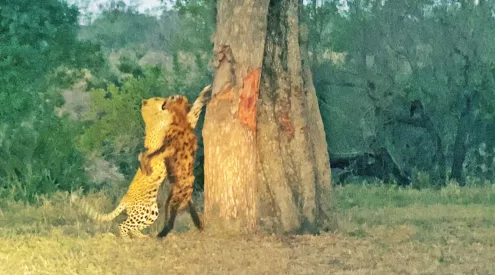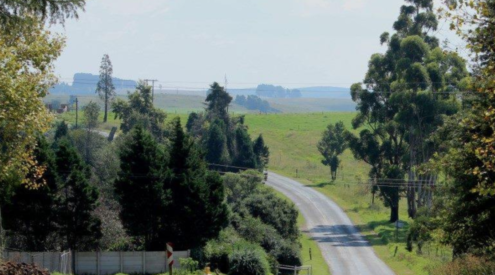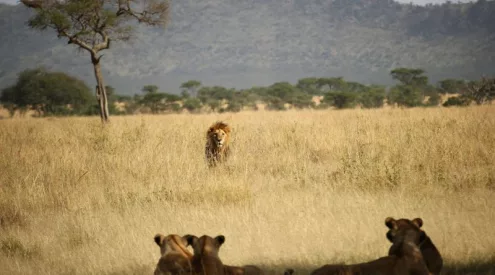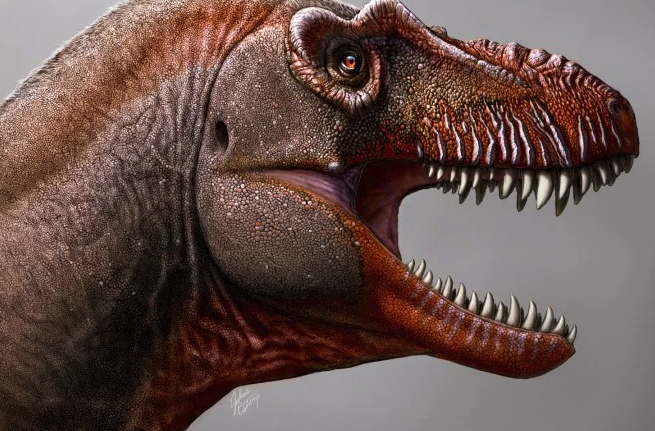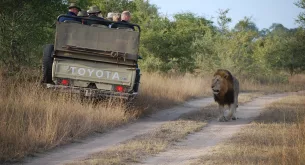Last week, palaeontologists in southern Alberta discovered one of the oldest tyrannosaur species ever to be unearthed in North America. This is the first time in 50 years that tyrannosaur remains have been discovered in the area, according to Lonely Planet.
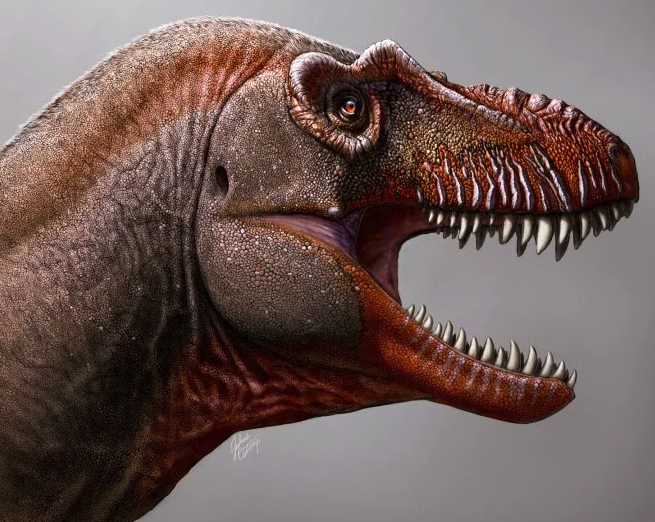
Illustration by Julius Csotonyi. Image: Royal Tyrrell Museum of Palaeontology
‘We are thrilled to announce the first new species of tyrannosaur to be discovered in Canada in 50 years,’ said Dr. François Therrien, Curator of Dinosaur Palaeoecology at the Royal Tyrrell Museum. The last tyrannosaur described from Canada was Daspletosaurus in 1970.
There are only four other tyrannosaurs known from Canada: Daspletosaurus, Gorgosaurus, Albertosaurus, and Tyrannosaurus.
According to scientists, the species is a direct relative of the Tyrannosaurus rex. Named the Thanatotheristes degrootorum, the species is believed to be around 79.5-million years old.
Most dinosaur species from Alberta date from between 77 – 66 million years old. There are only two other dinosaurs known from Alberta from the same time period as Thanatotheristes: a dome-headed dinosaur (Colepiocephale) and a horned dinosaur (Xenoceratops).
Scientists from the University of Calgary and the Royal Tyrrell Museum of Palaeontology published an article in the Cretaceous Research journal, stipulating that the species is approximately 2.5-million years older than its closest relative.
In comparison to a full-grown T-Rex, which grew to be 12m in length, this species grew to about 9m long and weighed approximately 2 tons.
John de Groot, a farmer and palaeontology enthusiast, found the fossil skull fragments while hiking near Hays, Alberta. ‘The jawbone was an absolutely stunning find. We knew it was special because you could clearly see the fossilized teeth,’ he said.
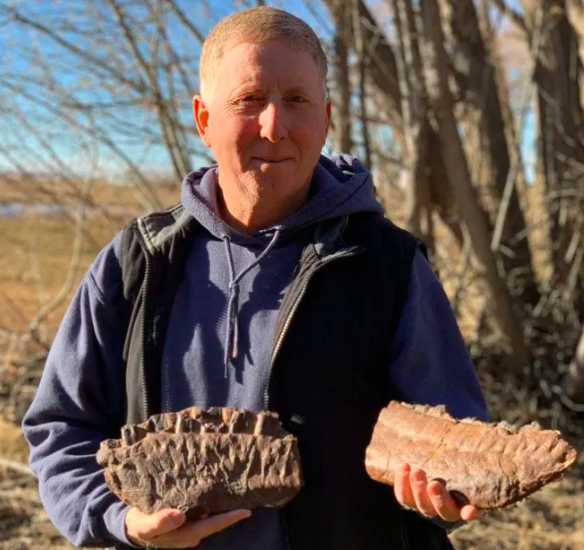
Image: John and Sandra De Groot
Scientists were able to conclude that this is a new, distinct species by analyzing the unique features of fossil skull fragments. ‘Thanatotheristes can be distinguished from all other tyrannosaurs by numerous characteristics of the skull, but the most prominent are vertical ridges that run the length of the upper jaw,’ said Jared Voris, a University of Calgary Ph.D. student, and lead author of the study.
‘This discovery is significant because it fills in a gap in our understanding of tyrannosaur evolution,’ said Dr. Therrien. Thanatotheristes provides scientists with insights into the tyrannosaur family tree and shows that tyrannosaurs from the Cretaceous of Alberta were more diverse than previously known.
The name of the species was inspired by Thanatos (Greek god of death) and theristes (one who reaps or harvests). The second part of the name honours the De Groot family.


